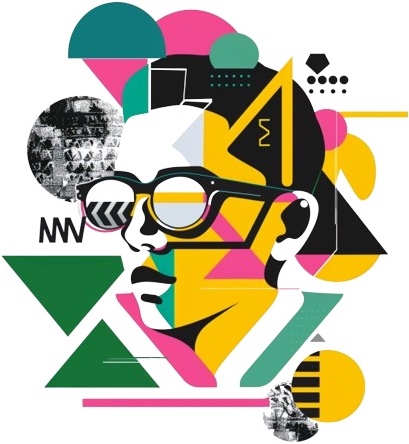Can AI Write a Novel?
By RG team · 9 min read
Last Updated on July 11, 2023
Wait a minute...

Introduction

In today's rapidly evolving world, advancements in artificial intelligence (AI) have significantly impacted various industries, from healthcare to finance. One area that has captured the attention of entrepreneurs and creative minds alike is the question of whether AI can write a novel. The notion of a machine capturing the essence of human creativity and producing a compelling piece of fiction is both intriguing and controversial.
AI has already shown remarkable progress in generating written content. As early as 2017, one of the first experimental AI-written novels, titled "1 the Road," appeared. This groundbreaking achievement demonstrated that AI could produce a coherent narrative, blurring the lines between human and machine authorship.
However, the central question remains: Can AI truly write a novel? While AI algorithms can generate readable and passable content, achieving the complexity, depth, and emotional resonance of a human-authored novel is an ongoing challenge. AI lacks the human experience, emotions, and context that shape the richness of our stories.
Nevertheless, entrepreneurs and developers have recognized the potential in blending AI technology with human creativity to enhance the novel-writing process. One such platform that aims to bridge this gap is DripsAI. This innovative tool offers a unique solution for novelists, providing the missing puzzle piece for online novel writing.
Throughout this article, we will explore the current capabilities of AI in writing books, delve into the possibilities and limitations, and unveil the potential impact of platforms like DripsAI in shaping the future of novel writing. So let's embark on this fascinating journey and discover how AI can revolutionize the world of storytelling.
The Current Capabilities of AI in Writing Books
The current capabilities of AI in writing books have shown promising results, but it is important to understand the limitations. AI algorithms excel at processing vast amounts of data, identifying patterns, and generating content based on those patterns. This ability allows AI to generate passable and coherent narratives, especially in specific genres with clear structures, such as crime fiction or romance novels.
AI story generator tools, like AI Dungeon, leverage sophisticated algorithms to create new stories. Writers can use these tools to generate ideas for plots, characters, and settings, saving valuable time in the brainstorming process. Additionally, some AI story generators allow users to share their ideas with others and receive feedback on their work, fostering collaboration and creativity within the writing community.
The emergence of AI has also democratized the publishing industry. With platforms like ChatGPT, aspiring writers can create and self-publish their books. This accessibility brings new voices to the literary world, enabling anyone to become a published author, regardless of their background or experience.
However, it is important to note that while AI-generated content can get the job done, it is not yet sentient enough to rival the genius of Pulitzer Prize-winning journalists or authors. AI lacks the depth of emotions, life experiences, and nuanced storytelling that make human-authored novels captivating and relatable. This is where the collaboration between AI and human writers becomes crucial.
Platforms like DripsAI offer a unique approach to novel writing. By combining the power of AI to generate initial drafts and creative suggestions with the expertise and emotional intelligence of human authors, DripsAI aims to enhance the writing process, providing writers with a valuable tool to craft remarkable narratives.
Pros and Cons of Using AI in Novel Writing

The integration of AI in novel writing offers several advantages. Firstly, AI algorithms can generate ideas and assist writers in overcoming writer's block. By using AI story generators, writers can explore various plot twists, character arcs, and settings, sparking new creativity and inspiration. This can be especially valuable for authors who may be struggling to come up with fresh ideas or are seeking a different perspective for their narratives.
AI can also enhance the efficiency of the writing process. With the assistance of AI tools, writers can automate certain tasks, such as proofreading, grammar checks, and sentence restructuring. This streamlines the editing and revision process, allowing authors to focus more on the creative aspects of storytelling.
Another benefit of using AI in novel writing is its potential to reach a wider audience. AI-generated content enables authors to write in multiple languages, tailoring their stories to a global readership. Translations can be generated quickly and accurately, facilitating the accessibility and international distribution of novels.
However, alongside these advantages, there are inherent challenges when it comes to relying solely on AI for novel writing. One major concern is the loss of human touch and emotional depth in the narratives. While AI algorithms can mimic certain writing styles and patterns, they often lack the ability to evoke complex emotions or capture the nuances of human experiences.
Additionally, the misuse or overreliance on AI-generated content could lead to a homogenization of literature. Each writer possesses a unique voice and perspective, contributing to the diversity and richness of storytelling. If AI becomes the primary source of content creation, there is a risk that originality and individuality may be compromised.
Furthermore, AI-generated content raises ethical dilemmas in terms of copyright and intellectual property. Determining ownership and plagiarism becomes increasingly complex when AI tools produce substantial portions of a novel. This poses a challenge for both writers and the publishing industry as they navigate the legal and ethical implications of AI-generated content.
Considering these pros and cons, it becomes evident that a balanced approach that combines the strengths of AI with human creativity is key to harnessing the full potential of novel writing. In the upcoming section, we will explore the future of novel writing and how platforms like DripsAI can bridge the gap between AI technology and human authors, leading to a new era of storytelling.
The Potential of AI in the Future of Novel Writing
As AI continues to advance, the potential for its role in the future of novel writing becomes increasingly intriguing. While AI may not replace the genius of human authors, it can serve as a powerful tool to augment and enhance the creative process. The collaboration between AI technology and human writers holds the key to unlocking new possibilities and pushing the boundaries of storytelling.
Platforms like DripsAI embody this potential by offering a comprehensive solution for novel writing. With DripsAI, authors can leverage AI algorithms to generate initial drafts, suggest plot developments, and even offer alternative storylines. This not only speeds up the writing process but also provides fresh perspectives and creative input that can inspire authors to think beyond their initial ideas.
Moreover, DripsAI can assist in maintaining consistency throughout a novel. With the vast amount of content generated by AI, authors can easily refer back to earlier chapters or plot points to ensure coherence and avoid plot holes. This feature saves time on manual cross-referencing and enables authors to focus on refining their storytelling.
Additionally, AI can also aid in market research and audience engagement. By analyzing reader preferences, AI algorithms can provide insights into which plot twists, character dynamics, or themes are resonating with readers. This valuable data can help authors tailor their narratives to maximize reader satisfaction and success.
Furthermore, the integration of AI technology in novel writing opens up opportunities for interactive storytelling. Imagine novels capable of adapting to readers' preferences or allowing them to choose the path the story will take. AI algorithms can process reader feedback and adjust the narrative in real-time, creating a more immersive and personalized reading experience.
While AI's potential in the future of novel writing is immense, it is essential to strike a balance between technological advancements and preserving the artistry of human authors. Ultimately, the collaboration between human creativity and AI intelligence has the potential to revolutionize the way we write and experience novels.
The Impact of AI in the Publishing Industry

The integration of AI in novel writing has not only transformed the creative process but also had a profound impact on the publishing industry as a whole. The accessibility and convenience offered by AI-powered tools have democratized the publishing landscape, allowing aspiring authors from diverse backgrounds to bring their stories to life.
AI software, such as ChatGPT, has made self-publishing more accessible than ever before. Authors can now bypass traditional gatekeepers in the publishing industry and take control of their creative journey. This shift empowers authors to reach a global audience and establish their presence in the literary world, regardless of their connections or prior publishing experience.
Furthermore, AI-generated content has created opportunities for niche markets and niche genres to flourish. AI algorithms can analyze data on reader preferences, helping authors identify untapped markets and cater to specific readership demographics. This level of personalization can lead to increased engagement and loyalty among readers, spurring the growth of diverse storytelling.
Striking a Balance: AI and the Authenticity of Human Authors
As we anticipate the future of novel writing, it is crucial to strike a delicate balance between the integration of AI technology and the authenticity of human authors. While AI has shown incredible advancements in generating content and assisting in the writing process, it is the human touch that brings depth, emotion, and unique perspectives to storytelling.
AI algorithms excel at analyzing data, identifying patterns, and generating content based on those patterns. However, they lack the lived experiences, cultural nuances, and emotional intelligence that human authors possess. It is these qualities that enable human authors to create narratives that resonate deeply with readers and evoke a myriad of emotions.
Embracing the potential of AI in novel writing should not come at the expense of devaluing the contributions of human authors. Instead, AI should be viewed as a valuable tool that enhances the creative process, providing novel insights and streamlining certain aspects of writing. The collaboration between AI and human authors has the potential to amplify creativity, improve efficiency, and yield captivating stories.
Platforms like DripsAI exemplify this balanced approach, where AI technology works hand in hand with human authors. By leveraging AI-generated suggestions and prompts, authors can explore new ideas, overcome creative blocks, and refine their narratives. The creative input and emotional depth that human authors bring to the table remain irreplaceable, ensuring the authenticity and richness of storytelling.
It is essential for the publishing industry to prioritize diversity, inclusivity, and the preservation of human creativity in the face of AI advancements. By embracing AI as a tool to supplement and enhance the creative process, authors can maintain their distinct voices and cater to a wide range of readers' tastes and preferences.



